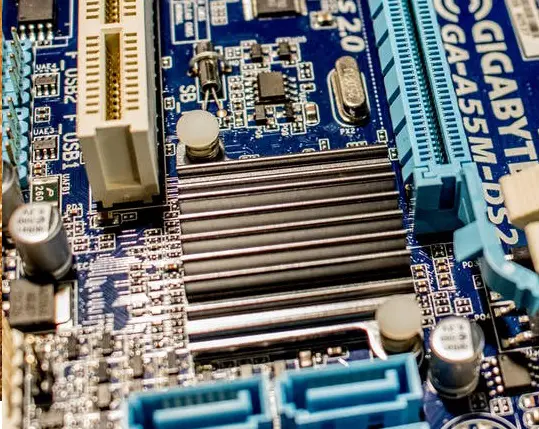According to sources, the US is pressuring the Dutch government to ban the export of older chip-making lithography equipment sold by ASML Holding NV to China. The older equipment is used to produce a large number of the less complicated chips used in everything from cell phones to cars.
The proposed export ban would expand a previous moratorium on the sale of the most advanced chipmaking technology, and prevent China from becoming a world leader in chip supply. If Washington can get the Netherlands to agree, it will deal a serious blow to China’s chipmaking aspirations, and seriously set back a range of Chinese chipmakers, from from Semiconductor Manufacturing International Corp. to Hua Hong Semiconductor Ltd.
The technology America wants restricted is ASML’s older deep ultraviolet lithography, or DUV chip-making systems. Although they are a full generation behind the cutting edge technology, they are still the most common chip making system, used to produce a wide range of less sophisticated chips used to power many devices today, from cars, to cellphones, to robots.
ASML’s shares in the Netherlands gained 2.6% Wednesday. Its American Depository Receipts were down 3.9% at the close on Tuesday after the initial report came out of Bloomberg. In Tokyo, a smaller rival to ASML, Nikon Corp, closed down 5.1%.
The US raised the issue when US Deputy Commerce Secretary Don Graves visited the Netherlands back in May and June for discussions of supply chain issues. During the trip Graves paid a visit to ASML’s headquarters to discuss the issue with Chief Executive Officer Peter Wennink.
Analysts say ASML’s sales could drop by 5-10% if the Netherlands decides to ban the export of the DUV devices. ASML may experience less impact from the ban given it is already banned from delivering the later generation of lithography equipment to China. Chipmaking peers such as Applied Materials, which derives 25-30% of its sale from China would be far more affected.
The Dutch government has yet to make a decision on any export ban, which could hurt the country’s trade relationship with China. However the current ban on exporting ASML’s most advanced devices to China, which cost about $164 million per unit, would lessen the perceived magnitude of any action.
When asked, an ASML spokeswoman said, “The discussion is not new. No decisions have been made and we do not want to speculate or comment on rumors.”
ASML is the premier manufacturer of lithography systems, required to perform a crucial step in the production of semiconductors. ASML’s dominance in the sector means that denying China access to their equipment would seriously set back the nation’s ambitions to become more self-sufficient in the production of electronic components.
Alex Capri, a research fellow at the Asia-based Hinrich Foundation said, “China’s share of the global chip-equipment market is negligible,” however chip production is “a choke point” which China is trying to overcome as it builds up its semiconductor industry.
DUV, the older chipmaking technology, is not as capable as the newer EUV lithographic equipment, however it is vital to making the less complex chips used in a variety of devices which are in such short supply now. Washington’s focus is on immersion lithography machines, which are the most advanced form of DUV devices.
At the same time Washington is applying pressure to Japan to cease shipments of the same technology to China. Nikon is a direct competitor to ASML in the field.
In the area of immersion lithography, also called argon fluoride immersion, or simply ArFi, ASML sold 81 units in 2021, while Nikon only sold four, giving the Dutch 95% of the market in the machines.
Dutch Prime Minister Mark Rutte has said he is against upsetting trade relations which Beijing, preferring the EU develop its own policies with respect to China. After Germany and Belgium, the Netherlands is China’s third biggest trade partner.
For its part ASML opposes any ban on sales, saying the DUV technology is fully mature, and there is no reason to limit their sale of it. Chinese business accounted for 14.7% of ASML’s total revenue in 2021.
The push to ban the sales of chipmaking technology to China began under the Trump administration, which secured the sales ban on the more advanced EUV lithography systems, required to produce the most advanced semiconductors – a technology over which ASL has a monopoly.
US chipmakers, including Applied Materials Inc. and Lam Research Corp., are already banned from selling specific advanced technologies to Chinese companies due to national security concerns. This new ban will seriously impact Chinese chipmakers like SMIC.
Johnson Wang, an analyst at Taiwan Institute of Economic Research said, “Lithography equipment is the most difficult equipment for China to replace when it comes to semiconductor production. Without access to foreign DUV lithography equipment, the progress of China’s chip industry could come to a halt.”

